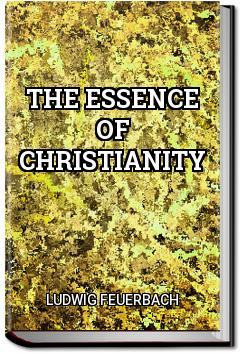UNLIMITED Audiobooks and eBooks
Over 40,000 books & works on all major devices
Get ALL YOU CAN for FREE for 30 days!
The Essence of Christianity
Ludwig Feuerbach
How does All You Can Books work?
All You Can Books gives you UNLIMITED access to over 40,000 Audiobooks, eBooks, and Foreign Language courses. Download as many audiobooks, ebooks, language audio courses, and language e-workbooks as you want during the FREE trial and it's all yours to keep even if you cancel during the FREE trial. The service works on any major device including computers, smartphones, music players, e-readers, and tablets. You can try the service for FREE for 30 days then it's just $19.99 per month after that. So for the price everyone else charges for just 1 book, we offer you UNLIMITED audio books, e-books and language courses to download and enjoy as you please. No restrictions.
Try now for FREE!

"Love your service - thanks so much for what you do!"
- Customer Cathryn Mazer
"I did not realize that you would have so many audio books I would enjoy"
- Customer Sharon Morrison
"For all my fellow Audio Book & E-Book regulars:
This is about as close to nirvana as I have found!"
- Twitter post from @bobbyekat



Community Reviews
This book is the foundation of modern atheism. There is scarcely any argument used today by atheists against the existence of God that Feuerbach had not already discussed in this masterpiece, first published in 1841. God is an illusion; God is a delusion; God is a projection of mankind's best qualit
Nineteenth century philosopher hero who came out against hierarchies, and particularly religious hierarchies, and laid the ground for later radical thinkers such as Marx. He saw religion in distinctly anthropological terms with God and religion being our anthropomorphic projections rather than havin
One of the transition points between Hegel and Marx. Feuerbach's anti-religious strategy is to propose an "anthropological" account of religion as representing a community's idealised notion of individual human nature, whilst repudiating the theoretical excresences of christian theology. It's an arg
One of the more difficult books I've ever read, but filled with great ideas. Basically Feuerbach says that Christianity (love of Christ) should really be about love of man, and this is simply because Christ sacrificed himself becasue of this love for man. Consequently, if we don't love and care for
Man created God: here's what the German philosopher Ludwig Feuerbach affirms, in this classic, first published in 1841!
God? A product of our imagination; an 'Ideal', made up from everything we value as being admirable, besides being devoid of our own weaknesses.
This view is striking, not least bec
Hegel is easy to understand once you realize that he would agree with Peter O’Toole’s character from the 1972 movie The Ruling Class when his character is asked: ‘How do you know you're God?’, and he responds: ‘Simple. When I pray to Him, I find I am talking to myself’. Yes, there is a God but he is
From theology graduate to atheist, I'm seeing this model a lot even these days, the spark might be caused by the impossibility of finding internal answers or peace in dogma, then Feuerbach starts describing the world from finite to infinite, turning his back to Hegel's ideology. For me at least, mat
Another in the surprisingly large group of books, 'things that, although incomprehensible to people who don't understand Hegel, are read with great relish by people who don't understand Hegel because they can be used to re-affirm preexisting prejudices' (see also Marx, Kojeve, all the 'end of histor
I read this because I'm trying to get a better grasp of Hegelian thought in general, and also on the historical lineage of Marxism. I don't know how much this is going to help me in that mission so far. I think I need to read Marx's writings on Feuerbach, and the Stirner-Feuerbach exchanges to get a